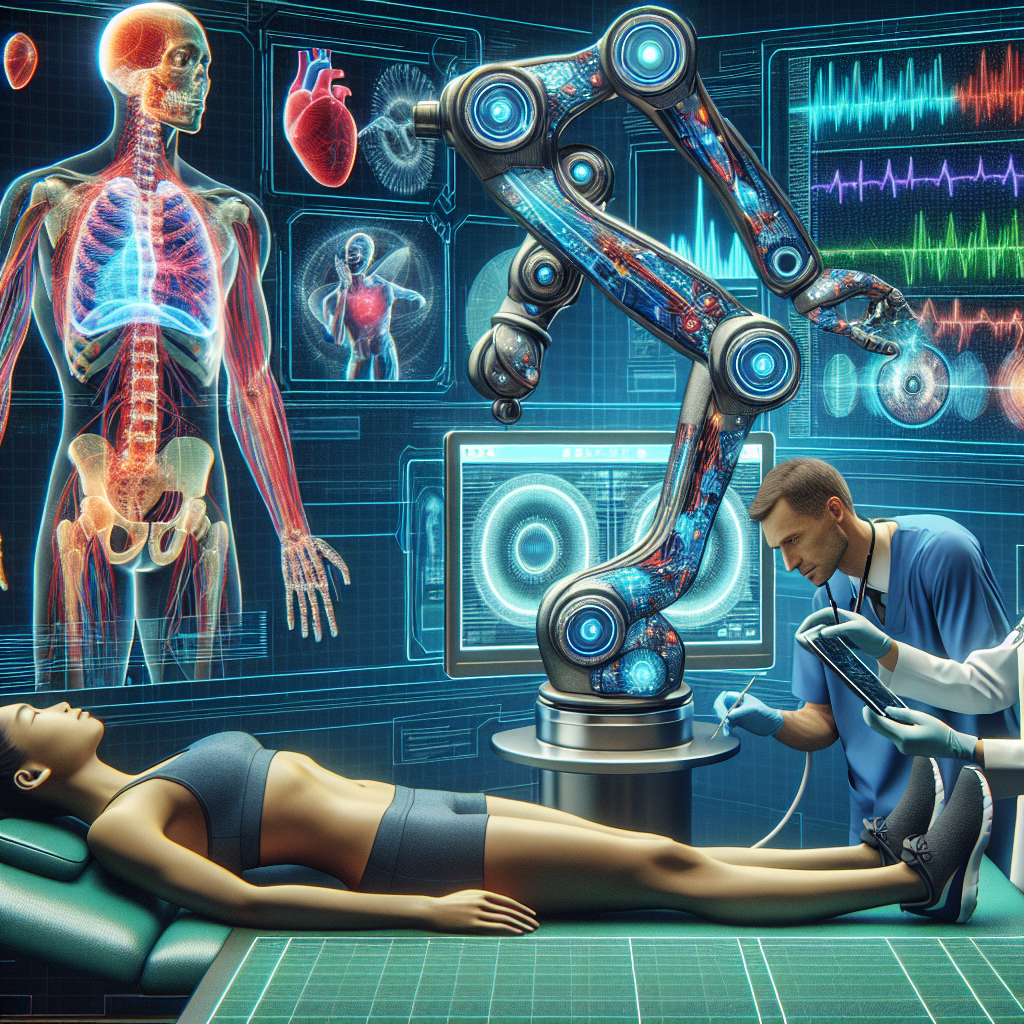Artificial intelligence (AI) has become increasingly prevalent in various industries, including healthcare. In sports medicine, AI technology is being used to enhance the diagnosis, treatment, and prevention of sports-related injuries. From predicting injury risk to personalized rehabilitation programs, AI is revolutionizing the way athletes and sports medicine professionals approach healthcare.
One of the key areas where AI is making a significant impact in sports medicine is injury prevention. By analyzing data from wearable devices, such as smartwatches and fitness trackers, AI algorithms can identify patterns and trends that may indicate an increased risk of injury. For example, changes in an athlete’s gait or running technique can be detected early on, allowing for interventions to prevent more serious injuries from occurring.
Furthermore, AI technology can also help in the diagnosis of sports-related injuries. By analyzing medical imaging scans, such as MRIs and X-rays, AI algorithms can assist healthcare professionals in accurately identifying and classifying injuries. This can lead to faster and more precise diagnosis, enabling athletes to receive appropriate treatment sooner and to return to play more quickly.
In addition to injury prevention and diagnosis, AI is also being used to personalize treatment and rehabilitation programs for athletes. By taking into account an athlete’s individual characteristics, such as age, gender, fitness level, and injury history, AI algorithms can create tailored exercise plans and recovery protocols. This personalized approach can help athletes recover more efficiently and reduce the risk of re-injury.
Moreover, AI technology is being used to optimize performance in sports. By analyzing data from training sessions and competitions, AI algorithms can provide insights into an athlete’s strengths and weaknesses. This information can be used to adjust training programs, improve technique, and enhance overall performance.
Overall, the application of AI in sports medicine has the potential to transform the way athletes are treated and managed. By leveraging the power of data analytics and machine learning, healthcare professionals can make more informed decisions, deliver personalized care, and ultimately improve the health and performance of athletes.
Frequently Asked Questions (FAQs)
Q: How is AI being used in sports medicine?
A: AI is being used in sports medicine to enhance injury prevention, diagnosis, treatment, and performance optimization. By analyzing data from wearable devices, medical imaging scans, and training sessions, AI algorithms can provide insights and recommendations to healthcare professionals and athletes.
Q: Can AI predict sports-related injuries?
A: Yes, AI algorithms can analyze data from wearable devices to identify patterns and trends that may indicate an increased risk of injury. By detecting changes in an athlete’s movement patterns or biomechanics, AI can predict and prevent injuries before they occur.
Q: How does AI personalize treatment and rehabilitation programs for athletes?
A: AI algorithms can take into account an athlete’s individual characteristics, such as age, fitness level, and injury history, to create personalized exercise plans and recovery protocols. By tailoring treatment programs to each athlete’s specific needs, AI can help optimize recovery and reduce the risk of re-injury.
Q: How can AI optimize performance in sports?
A: AI technology can analyze data from training sessions and competitions to provide insights into an athlete’s strengths and weaknesses. By identifying areas for improvement and adjusting training programs accordingly, AI can help athletes enhance their performance and achieve their full potential.
In conclusion, the application of AI in sports medicine is revolutionizing the way athletes are treated and managed. By leveraging data analytics and machine learning, healthcare professionals can deliver personalized care, prevent injuries, and optimize performance. As AI technology continues to advance, the future of sports medicine looks promising, with the potential to improve the health and well-being of athletes worldwide.

